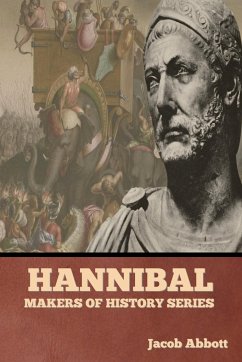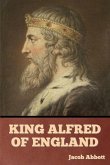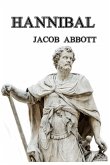Preface The author of this series has made it his special object to confine himself very strictly, even in the most minute details which he records, to historic truth. The narratives are not tales founded upon history, but history itself, without any embellishment or any deviations from the strict truth, so far as it can now be discovered by an attentive examination of the annals written at the time when the events themselves occurred. In writing the narratives, the author has endeavored to avail himself of the best sources of information which this country affords; and though, of course, there must be in these volumes, as in all historical narratives, more or less of imperfection and error, there is no intentional embellishment. Nothing is stated, not even the most minute and apparently imaginary details, without what was deemed good historical authority. The readers, therefore, may rely upon the record as the truth, and nothing but the truth, so far as an honest purpose and a careful examination have been effectual in ascertaining it. About the author: Jacob Abbott (November 14, 1803 - October 31, 1879) was an American writer of children's books. On November 14, 1803, Abbott was born in Hallowell, Maine to Jacob Abbott II and Betsey Chandler. He attended the Hallowell Academy. Abbott graduated from Bowdoin College in 1820. At some point during his years there, he supposedly added the second "t" to his surname, to avoid being "Jacob Abbot the 3rd" (although one source notes he did not actually begin signing his name with two t's until several years later). Abbott studied at Andover Theological Seminary in 1821, 1822, and 1824. He taught in Portland academy and was tutor in Amherst College during the next year. From 1825 to 1829 Abbott was professor of mathematics and natural philosophy at Amherst College; was licensed to preach by the Hampshire Association in 1826; founded the Mount Vernon School for Young Ladies in Boston in 1829, and was principal of it in 1829-1833; was pastor of Eliot Congregational Church (which he founded), at Roxbury, Massachusetts in 1834-1835; and was, with his brothers, a founder, and in 1843-1851 a principal of Abbott's Institute, and in 1845-1848 of the Mount Vernon School for Boys, in New York City. He was a prolific author, writing juvenile fiction, brief histories, biographies, religious books for the general reader, and a few works in popular science. He wrote 180 books and was a coauthor or editor of 31 more. He died in Farmington, Maine, where he had spent part of his time after 1839, and where his brother, Samuel Phillips Abbott, founded the Abbott School. His Rollo Books, such as Rollo at Play, Rollo in Europe, etc., are the best known of his writings, having as their chief characters a representative boy and his associates. In them Abbott did for one or two generations of young American readers a service not unlike that performed earlier, in England and America, by the authors of Evenings at Home, The History of Sandford and Merton, and The Parent's Assistant. To follow up his Rollo books, he wrote of Uncle George, using him to teach the young readers about ethics, geography, history, and science. He also wrote 22 volumes of biographical histories and a 10 volume set titled the Franconia Stories. (wikipedia.org)
Hinweis: Dieser Artikel kann nur an eine deutsche Lieferadresse ausgeliefert werden.
Hinweis: Dieser Artikel kann nur an eine deutsche Lieferadresse ausgeliefert werden.








